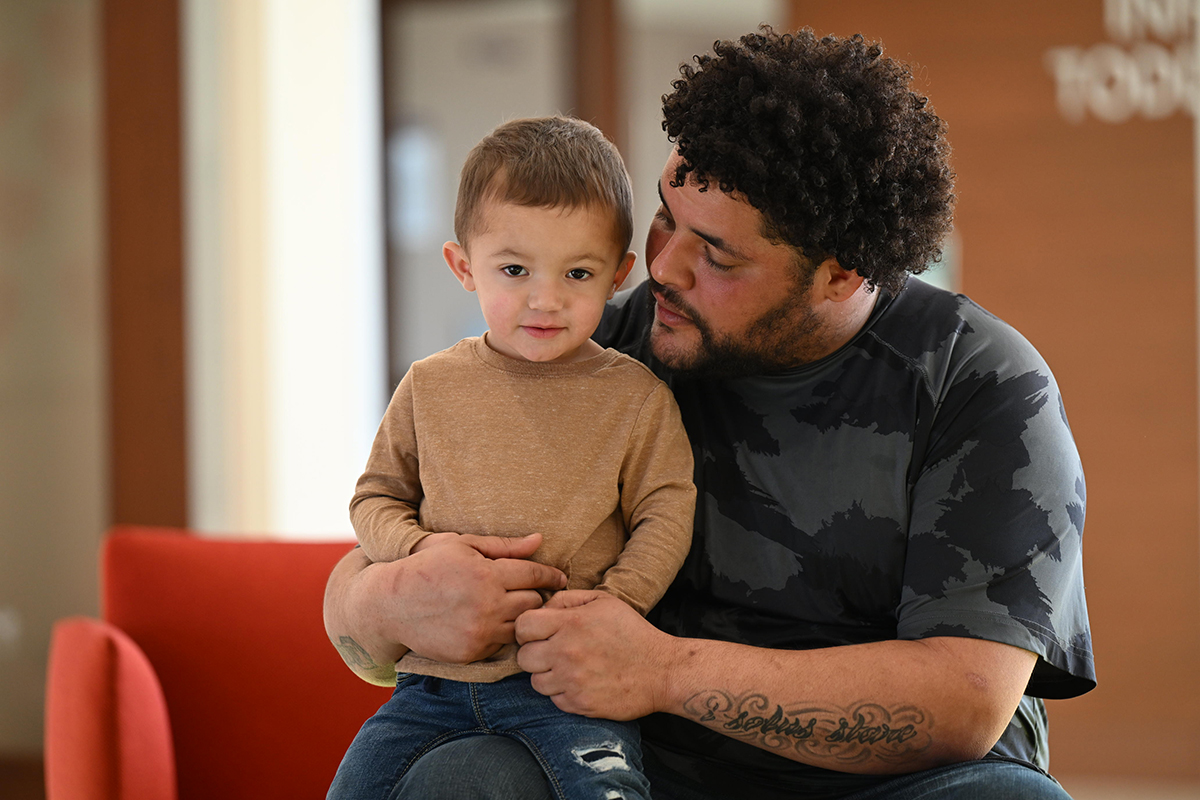Early Identification to Ensure Family Success: The View from Social Workers

By: Lindsay Knepp LSW, CHS Family Partnership Manager
Social workers, alongside educators, have long been advocates for the identification of developmental and behavioral concerns in early childhood education (ECE) programs. Now the issue has moved into the mainstream conversation, as the impact of COVID-19 has started to become visible in the pandemic babies who are enrolling into programs — and who appear to be experiencing more challenges compared to previous generations.
However, although this pandemic was new, the issue it raises is not. It is known that a child’s environment has a direct impact on their development. So-called ‘toxic stressors’ in early life – poverty, chronic neglect, parental mental health issues, or substance abuse, among others – alter brain architecture and development, and elevate the risk of significant mental health challenges later in life.
More explicit barriers, such as lack of access to basic resources, have also always kept children away from the classroom. Families need to have access to these basic needs – for example, jobs, healthcare, and housing – to help children and their families become successful; and without this support, children will continue to struggle with attendance. Before COVID-19, The Brookings Institute noted that 45% of preschoolers were “chronically absent,” or missing at least 10% of school days. The report further noted that children from low-income families are more likely than their peers to be chronically absent. Some of the factors contributing to this are preventable: emergency room visits due to the lack of regular primary care, or the lack of reliable transportation to bring children to centers. And when low-income children miss school, they often suffer more in the long run compared to their peers.
Early Identification
Many families are surprised to learn that young children may already need mental health support. However, children in the ECE age group are in their prime to address emerging behavioral and developmental issues. By the time professionals are working with families of K-12 students, children have already formed behavioral concerns and established ways of processing certain stressful situations. Addressing these issues later in life can be much more complex, so ECE providers must strive to make early identification in mental health to be the standard practice.
Professionals across education, health, and social work sectors have a tall order to destigmatize developmental and behavioral concerns. In the ECE world, mental health challenges can also be a subject that families feel unable to confront. But tackling the early signs of developmental and behavioral concerns should be given the same priority as tackling early signs of physical challenges. Many children are left without early diagnosis and treatment for mental health issues. With this, work must be done across sectors to reach families who are in search of support.
It is often said that social workers are on the front lines in the fight against poverty and to give children a chance to reach their full potential to lead happy, meaningful lives. That can be a challenge unless there is an emphasis on building trust and seeking to partner and collaborate with families on their child’s development. We couple this with a comprehensive process at pre-enrollment – comprised of two needs assessment exercises and a pre-admissions home visit – to determine behavioral and systemic gaps, such as lack of transportation and other resources, and how CHS can help the family as a whole.
Social workers and mental health professionals working in the ECE context should help the family see the importance of early identification of behavioral concerns. ECE providers have a responsibility to build relationships and break down barriers so that families know it is safe to discuss these issues openly, without any sense that they are ‘to blame’ or have ‘failed.’ This can often be achieved by talking about concerns from an observable perspective, versus saying, “Your child has a mental illness.” It is important for us to help families understand that mental and developmental delays are no one’s fault, but it does require strong collaboration between the provider and family to figure out the root cause, as well as how to help the child grow. And the earlier the identification, the better the outcome.
Family Partnerships
In an interview with USA TODAY, Mary Dozier, a psychology professor at the University of Delaware said that “Children can go through divorce, they can go through death, they can go through just an amazing array of things and come out looking pretty good if they’ve got somebody who can support them.” While children are resilient, it is important to note that their family plays a key role in their development and especially in overcoming trauma – and we, as practitioners of the field, have an opportunity to support these families in doing just that.
ECE providers need to ‘come alongside’ families to provide a stable foundation to follow through with skills and resources that will help children be successful beyond their early childhood years. Some of these can look like ensuring families have advocacy and other life-long skills. Families know their children best, and these skills will help to increase the ways families can support their children.
Many struggling families are in survival mode – going from crisis to crisis and getting by day by day and this can prevent them from addressing longer-term issues. ECE providers have an opportunity to work with families to improve everyone’s physical and mental well-being. Doing this will ensure that children will be exposed to fewer stressors at home, in addition to bringing down barriers that keep children away from our classrooms and prevent their future success.
Stay in touch by subscribing to our newsletter to receive updates and highlights from our Professional Resources blog.




